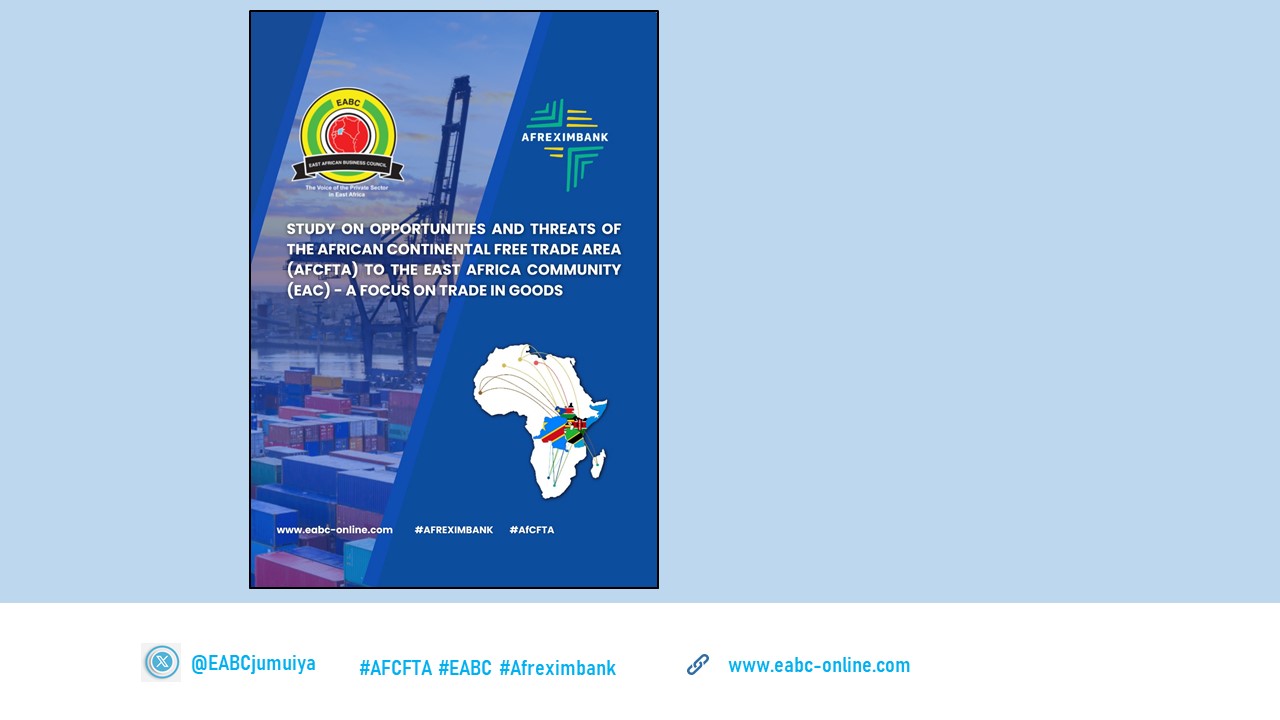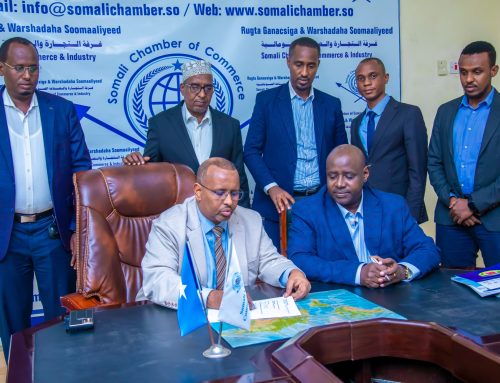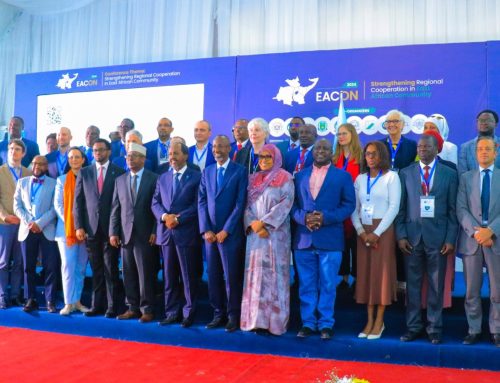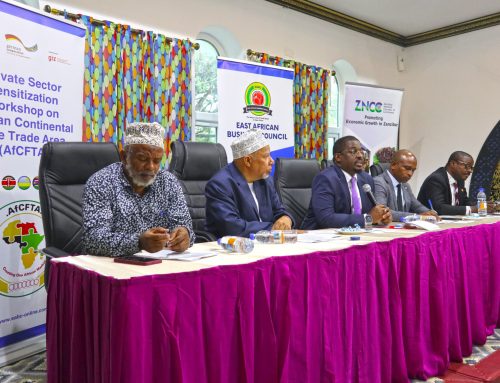Arusha, Tanzania 15th March 2024 – Officiating the Virtual Validation Session & the Study on Opportunities and Threats of AfCFTA to the EAC, the Chief Guest: Annette Mutaawe Ssemuwemba, EAC Deputy Secretary-General: Customs, Trade, and Monetary Affairs, stated that legal and institutional amendments at the country level will align with AfCFTA commitments, enabling businesses to seize opportunities in the 1.2 billion consumer continental market.
The EAC Deputy Secretary-General stated that the preliminary study findings show the comparative advantage of EAC at the continental level and will inform future targeted research at the value chain level to harness EAC’s potential to tap into the AfCFTA. She noted that public-private partnerships at the African Union level are important to improve infrastructure development and connectivity. Public and private dialogue to promote industrialization and capacitated SMEs to garner the AfCFTA opportunities were also emphasized.
On his part, Mr. John Bosco Kalisa, EABC Executive Director, called for the implementation of trade facilitation commitments by African Governments, stating that irregular tariffs, delays in clearance, and lack of harmonized standards continue to impact East African businesses trading under the AfCFTA.
The EABC-Afreximbank preliminary study findings show that the EAC has a comparative advantage in exporting vegetables, fuel, minerals, footwear, wood, stone glass, textiles, metals, and plastic rubber to Africa.
Mr. Kalisa said the EABC-Afreximbank preliminary study findings show that the total trade effect for the EAC bloc following AfCFTA Tariff liberalization is estimated at USD. 1.949 billion.
The Democratic Republic of Congo leads in terms of presenting more trade opportunities for African countries following AfCFTA tariff liberalization, followed by Uganda, Rwanda, Kenya, Tanzania, and Burundi, respectively. He stressed that access to information is vital for international commerce, citing trade information portals such as the African Trade Observatory, boosts knowledge of AfCFTA opportunities and instruments.
To simulate the potential effect of the AfCFTA tariff liberalization on trade among EAC member states, the trade data for 2020 was subjected to a 100% linear tariff cut to phase down the tariffs to 0% as expected by the year 2030 as per the EAC provisional schedule of tariff concessions for the AfCFTA.
The EABC – Afreximbank Study aimed at assessing the potential impact of the African Continental Free Trade Area (AfCFTA) Agreement on trade within the East African Community (EAC). The preliminary study findings also show that a significant trade gap exists between EAC Partner States and the rest of Africa, with, on average, 80 percent of exports from EAC countries going to the rest of the world. Only 20 percent of exports are directed to the rest of Africa. The Democratic Republic of the Congo topped by contributing 44 percent of total EAC’s exports to the rest of Africa, followed by Tanzania, which contributed 21 percent. In terms of import share, Uganda was found to have the largest share of 37 percent, followed by Rwanda and DR Congo at 17 percent each. Kenya had the highest trade complementarity index, and Rwanda had the highest trade intensity indices, followed by Burundi and Tanzania, indicating a more aggressive trade with Africa than other.
The study recommends:
- Strategic investment in local production sectors that replace imports from the rest of Africa and increase exports to other African countries. This will, by extension, reduce EAC trade with the rest of the world and boost intra-African trade.
- Intensive and aggressive investment in the manufacturing sector within EAC countries, as this would promote value addition and product diversification, and give EAC region an edge in intra-African trade. There should be increased focus of production in areas where EAC countries have been revealed to have a comparative advantage.
- EAC State Parties to implement policy measures targeted at facilitating intra-African trade, such as reduction of Non-Tariff Barriers, harmonization of standards, promotion of mutual recognition of Standards and SPS measures as well as ensuring full implementation of the AfCFTA Agreement.
- Empowering the business community in EAC with evidence-based trade information to leverage AfCFTA tariff concessions through sector-specific targeted awareness programs.
Virtual Validation Session & the Study on Opportunities and Threats of AfCFTA to the EAC convened over 100 stakeholders. AfCFTA market access, promotion of agricultural commodities trade under Common Africa agro pack, and trading of intermediate goods for continental value chain integration are among proposals from stakeholders.





